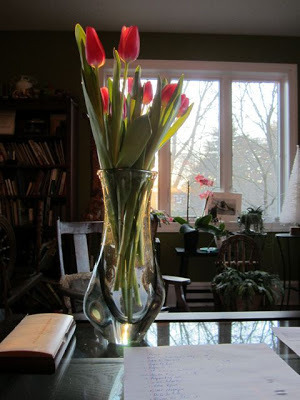Beth Kephart's Blog, page 146
January 20, 2013
sometimes you just have to say,
Published on January 20, 2013 13:54
how I feel when I see my son

My dashing son came home yesterday for a brief spell—long enough for me to share photos from Miami, long enough for him to update me on his various, most recent travels, long enough for me to share some thoughts about some pages I'd been reading, long enough for him to laugh out loud.
He is one handsome, charming guy.
This is how I felt when he left: all full of sun and ocean spray.




Published on January 20, 2013 12:05
January 19, 2013
could you live your entire writing life unknown, or: Author invisible: the Elena Ferrante story
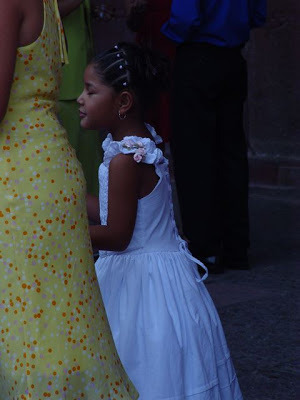
I don't care what time of night is, or how many days I've gone without sleep, or how many clients are knocking. I stop to read James Wood.
I was particularly interested in his story this week (New Yorker, January 21, 2103) on the writer "Elena Ferrante," an Italian who has never made herself, or her real name, known. She has, Wood tells us, made herself available to answer written questions. She has indicated that she both translates and teaches. But nobody knows what she looks like, she has appeared on no panel, she has been absent at awards dinners, there is no well-lit author pic, and perhaps she lives next door to you. If she does, she hasn't bored you with her tales of fame. She has, instead, borrowed your clothespins.
Her rationale was explained early in her career, in this note to her publisher, which Wood quotes like this in his piece:
I believe that books, once they are written, have no need of their authors. If they have something to say, they will sooner or later find readers; if not, they won't.... I very much love those mysterious volumes, both ancient and modern, that have no definite author but have had and continue to have an intense life of their own. They seem to me a sort of nighttime miracle, like the gifts of the Befana, which I waited for as a child.... True miracles are the ones whose makers will never be known.... Besides, isn't it true that promotion is expensive? I will be the least expensive author of the publishing house. I'll spare you even my presence.
I have sympathy for this woman who stands behind the Elena construct. For while my graciously lit author photo lives on the internet and on book jackets, while I speak at times, teach in the spring, joke around on Facebook, appear on some panels, physically grant the winners of prizes I judge their awards, and blog daily here, I am not there, most of the time, with my books. I don't tour. I am not a personality—not spontaneously clever, not actually interesting, not possessed of an air-brushed allure. I typically read from each of my books to a very small audience just once or a handful of times, and there are books that I have published that I have yet to actually read aloud to an audience of more than my son. What I write, in other words, does by and large need to stand on its own.
And sometimes it does. And sometimes it doesn't. So that much of what I am paying attention to, as I keep trekking forward in this journey, is this, specifically: How to leave pages behind that do not need me. How to make the work the most important thing of all.




Published on January 19, 2013 06:40
January 17, 2013
Marie Arana is kind beyond measure to HANDLING THE TRUTH
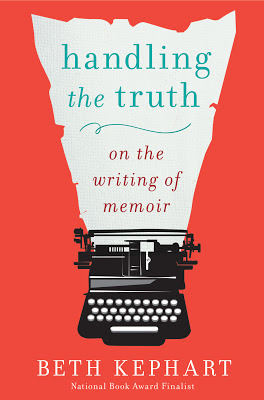
Handling the Truth has been deeply blessed today by words from Marie Arana. I had the privilege of writing a few reviews for Marie when she served as editor of the Washington Post book pages. I met her in person when her own memoir, American Chica, was honored as a National Book Awards finalist during the same year that I served as lead juror of the Young People's Literature Jury. Marie was looking gorgeous that night, as I'm pretty sure she always does. I watched her. I was dazzled.
But more than that: I have read aloud from American Chica in almost every memoir class I've ever taught. I have bent my voice around the sound of her words, and I have never lost the thrill of them. American Chica is just that good. It teaches tense, smell, sound, theme. I could talk about it forever.
Marie's words on Handling the Truth:
"A marvelous primer for anyone who would dare to face the furies and write about his or her life. Beth Kephart has read the genre closely, put her own feet to the fire, and distilled the form with all the passion of a great teacher."
--Marie Arana, author of the National Book Award finalist American Chica.




Published on January 17, 2013 15:53
Nathan Heller on Twentysomethings, and the power of the second-person pronoun

Nathan Heller is a patient, comprehensive reader, a man not prone to snap conclusions. Which is why I enjoyed his recent New Yorker story (January 14, 2013 issue) on twentysomethings. He remembers himself all those years ago. He reviews the literature of the young and the literature of those who purport to know about the young, and he wonders out loud in a voice both determined and delicate. This is how he ends his piece—a masterful, undamning, bittersweet conclusion. Here is how you is I, and how you is us:
The shock of the twenties is how narrow the window of experience really is, and how inevitable it seems both at the time and afterward. At some point, it is late, too late, and you are standing on the sidewalk outside somewhere very loud. A wind is blowing. It's the same cool, restless late-night breeze that blew on trampled nineteen-twenties lawns, and anywhere young people gather. Nearby, someone who doesn't smoke is smoking. An attractive stranger with a lightning laugh jaywalks between cars with a friend, making eye contact before scurrying inside. You're far from home. It's quiet. All at once, you have a thrilling sense of nowness, of the sheer potential of a verdant night with all these unmet people in it. For a long time after that, you think you'll never lose this life, those dreams. But that was, as they say, then.




Published on January 17, 2013 05:12
January 16, 2013
my river a finalist as the PA River of the Year
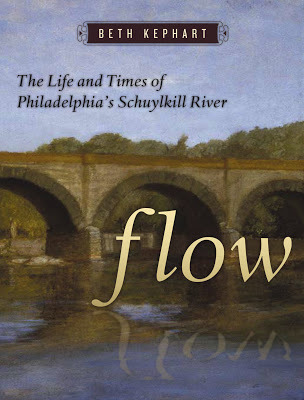
Well, no. Yet again I can't refer to a river as my one and very own. But I have loved the Schuylkill River for a long time now. I have written about her, both in a book called Flow and in a recent Inquirer story. So when I saw Joe Syrnick, Schuylkill Banks CEO, on the news just now at the gym, I had to smile. He was talking about her.
The Schuylkill, Joe was saying, is a finalist in the 2013 Pennsylvania River of the Year contest.
You can vote to turn her into a winner. I hope you do.




Published on January 16, 2013 09:26
January 15, 2013
a Beth portrait (courtesy of Julia)
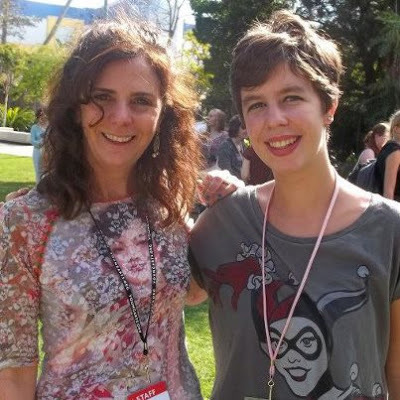
I make sure, most of the time, that the lens of the camera is pointing far away from me. But when Julia Hogan, one of the fantastic young writers of YoungArts asked if I could stand in the sun beside her for just a small, small wedge of time, I said yes.
And here we are. Two lovers of words.




Published on January 15, 2013 07:39
Spring Semester English 135.302 Begins, with words from Annie Dillard
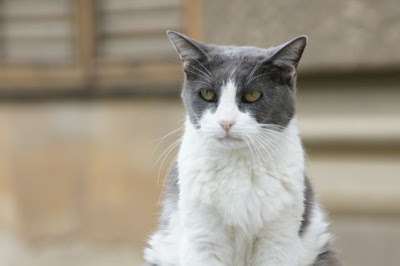
We'll meet at Penn today—me and my new flock of young memoirists. I've chosen, among many other things, to share the first page or two of Annie Dillard's Pilgrim at Tinker Creek. What do these sentences tell us about the memoir form, I'll ask? What do they free us, as writers, to do?
It's a question I might as well ask you:
I used to have a cat, an old fighting tom, who would jump through the open window by my bed in the middle of the night and land on my chest. I'd half-awaken. He'd stick his skull under my nose and purr, stinking of urine and blood. Some nights he kneaded my bare chest with his front paws, powerfully, arching his back, as if sharpening his claws, or pummeling a mother for milk. And some mornings I'd wake in daylight to find my body covered with paw prints in blood; I looked as though I'd been painted with roses.




Published on January 15, 2013 05:12
January 14, 2013
David Lee, poet, talks about the YoungArts writers; it's not just me who thinks they're brilliant
I didn't just fall in love with the kids at YoungArts. I gained massive respect for the brave and beautiful poet David Lee. Here is David talking about the kids, and here are two of the kids.




Published on January 14, 2013 07:11
The Colour of Milk/Nell Leyshon: Reflections
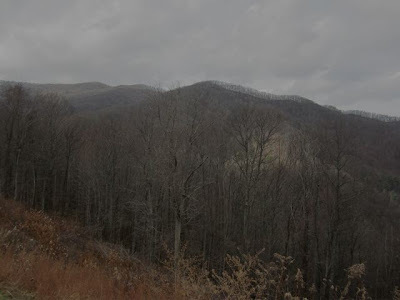
I spent much of last week in the company of YoungArts writers whose stories and words were so full of the fearless, so unbroken by other people's ideas of what story and language might be, that there was no way in hell I was going to read an ordinary book on the way home. Not that I seek out the ordinary, ever. But sometimes I get stuck with it, and I get rankled through.
So I went to Books & Books while the YoungArtists were listening to people like Joshua Bell and Bill T. Jones and Adrian Grenier and Debbie Allen talk (oh, my), because I knew I could rely on a famous independent to cut the deck of new releases right. And there, on the front table, I found The Colour of Milk, by Nell Leyshon. I had never heard of it or her, but because I am forever milking my own metaphors, I was intrigued. Read the first two lines. Bought it. Finished it on the flight home. Held it to my chest—this riveting, fierce, enveloping, and I-know-you-want-to know-what-it-is-actually-about book, so let me explain that in a line or two. The Colour of Milk is the story of a girl in the year 1831 who has learned literacy, but at a terrible price. Milk is her story, her confession. Milk will break your heart.
Let me show you how it starts:
this is my book and i am writing it by my own hand.
in this year of lord eighteen hundred and thirty one I am reached the age of fifteen and i am sitting by my window and i can see many things. i can see birds and they fill the sky with their cries. i can see the trees and i can see the leaves.
and each leaf has veins which run down it.
and the bark of each tree has cracks.
i am not very tall and my hair is the colour of milk.
my name is mary and i have learned to spell it. m.a.r.y. that is how you letter it.




Published on January 14, 2013 04:46

